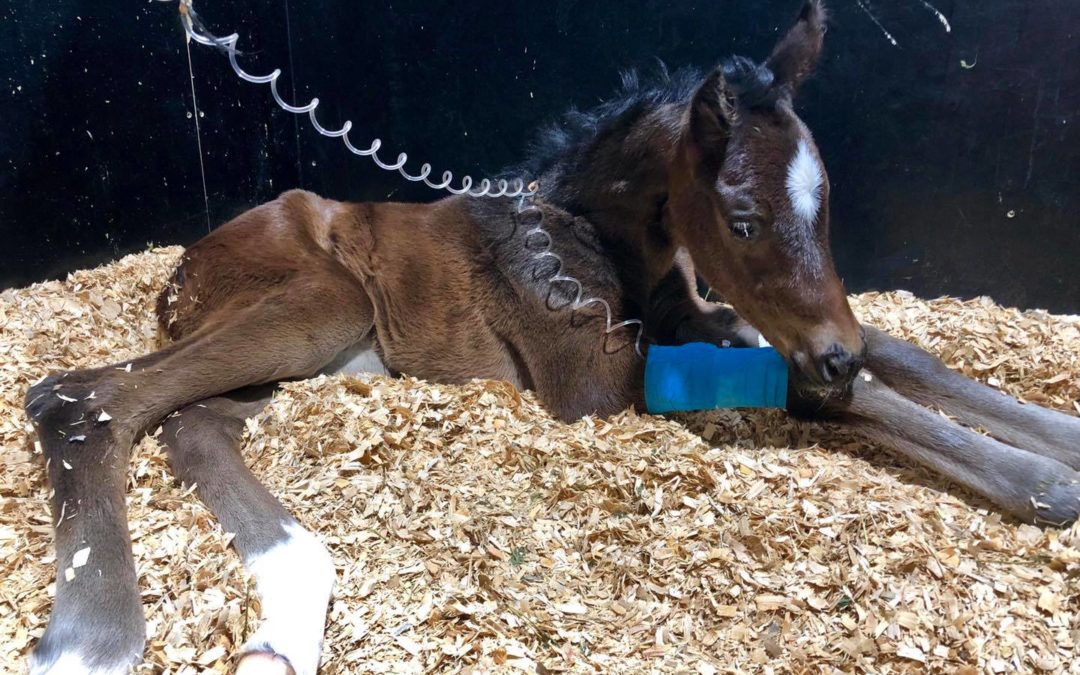After birth a foal should:
– Be able to sit on its chest within 5-10 minutes.
– Have a strong suck reflex within 20 minutes.
– Should be able to stand within 1 hour and nurse independently within 2 hours of birth.
– Urinate within 12 hours.
– Begin to pass meconium (first manure) within 12 hours after birth.
Early recognition of abnormal foals allows us to increase the chance of successful treatment and in turn a healthier foal. It is important to seek veterinary care if any of the following are displayed:
– The foal does not follow the above timeline.
– Born prematurely.
– Foal shows altered behaviour such as lethargy, wandering aimlessly, weakness feeding or nursing other parts of the mare or objects such as walls or fences.
-Foal is straining to urinate or defecate and showing signs of colic.
– Foal has diarrhoea
– Respiratory distress or struggling to breath.
– Foal becomes lame and has swelling of the joints
It is advised that both the mare and foal be checked by a vet within 24 hours of foaling. A blood sample can be taken at this time to measure the immunity (IgG) levels of the foal. Low levels of IgG means that the foal will need to be given plasma intravenously.
Darling Downs Vets offers field vets that are available for on property consultations to examine your mare and foal post foaling, as well as in hospital intensive care management of unwell foals.





